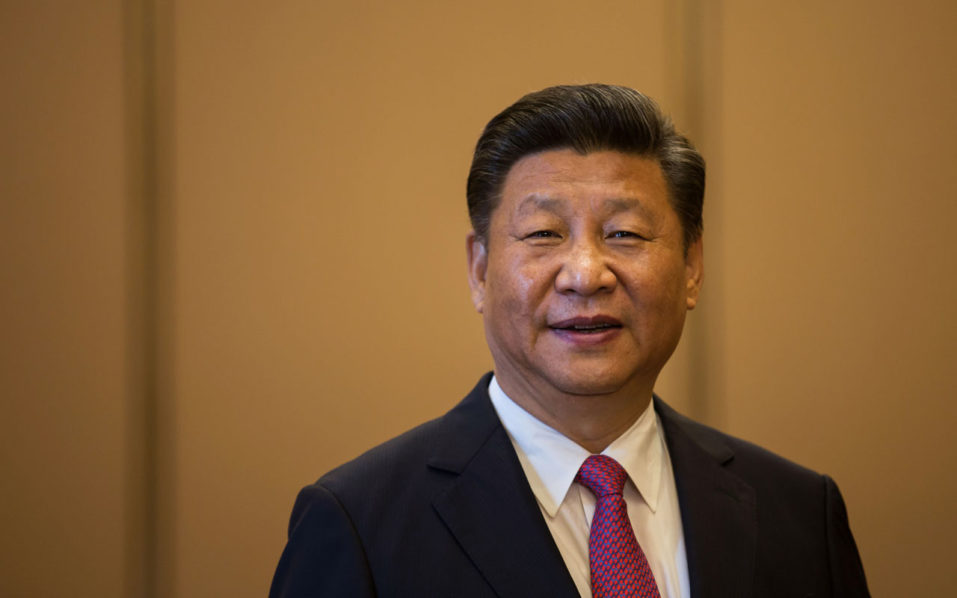
China called Tuesday for extra efforts to resolve the North Korean nuclear crisis through talks after US President Donald Trump re-branded Pyongyang as a state sponsor of terrorism.
Beijing has repeatedly pushed for negotiations to end the standoff. Some analysts warned that the terror designation could further inflame tensions.
“We still hope all relevant parties can contribute to easing tensions, that the relevant parties can resume talks and (adopt) the correct track to resolving the Korean peninsula issue through dialogue and consultation,” said foreign ministry spokesman Lu Kang.
“More should be done in that regard.”
China has pushed for a “dual track approach” which would require the United States to freeze its military drills in South Korea while North Korea would halt its weapons programmes, but the proposal has not gained traction.
Trump on Monday promised a rapid escalation of US Treasury sanctions against the North after adding its name to a terror blacklist previously led by Iran and Syria.
“Should have happened a long time ago. Should have happened years ago,” Trump said.
He cited the death of a US student who had been held in a North Korean jail and the assassination by nerve agent of Kim’s elder half-brother on foreign soil as reasons for the move.
However, Secretary of State Rex Tillerson said sanctions and diplomacy could still pressure North Korean leader Kim Jong-Un into talks on nuclear disarmament.
“We still hope for diplomacy,” he said, adding that punitive measures were already having a significant impact on Pyongyang’s economy.
There was no immediate reaction from North Korea, but an editorial in the ruling party newspaper Rodong Sinmun before the announcement described Trump as a “mentally deranged money-grabber” who was leading the US down an “irretrievable road to hell”.
The White House has said it will not tolerate the North’s testing or deployment of an intercontinental ballistic missile capable of carrying a nuclear warhead to US cities.
Experts believe Pyongyang is within months of such a threshold, having carried out six nuclear tests since 2006 and test-fired several types of missiles, including multi-stage rockets.
Japan said it “welcomes and supports” Trump’s announcement. But there was a more restrained response from South Korea.
Seoul’s foreign ministry said the US measure was “part of the international community’s common efforts to bring North Korea to the path of denuclearisation through strong sanctions and pressure”.
Some analysts warned of a possible backlash.
“North Korea will consider it as a thing next to a declaration of war,” Professor Yang Moo-Jin of the University for North Korean Studies in Seoul told AFP.
“There is a possibility that it may retaliate by test-launching an ICBM in the near future.”
‘Maximum pressure’
Both Trump and Kim have previously raised fears of open conflict erupting over the North’s banned nuclear missile programme, as they exchanged insults and threats of a devastating military response.
But US officials say their main hope is that Pyongyang will back down, in the face of what Tillerson described as an inexorable increase in Chinese-backed economic and diplomatic pressure.
“We know that there are current shortages of fuel based upon what we can gather anecdotally and also from certain intelligence sources,” Tillerson said.
“We know that their revenues are down,” he said. “So I think it is having an effect. Is this the reason we haven’t had a provocative act in 60 days?”
North Korea is already under a crushing sanctions regime, and Monday’s terror designation will not have much immediate economic impact.
But Trump said his declaration was the prelude to a two-week period of announcements — starting with a “very large” US Treasury sanctions measure — that would amount to a “maximum pressure campaign”.
US officials see the designation — which was removed by then-president George W. Bush in 2008 — as a way of intensifying pressure on other nations and foreign banks which may be failing to fully enforce the sanctions.
Tortured in custody?
“In addition to threatening the world by nuclear devastation, North Korea repeatedly supported acts of international terrorism including assassinations on foreign soil,” Trump said.
Trump invoked Otto Warmbier, the 22-year-old who died this year after being repatriated from detention in North Korea in a coma. US officials allege he was tortured in custody.
In February Kim’s potential rival and elder half-brother Kim Jong-Nam died after he was sprayed with a nerve agent in Kuala Lumpur airport, in an assassination blamed on Pyongyang.
US officials would not say what new sanctions might be announced but an expert predicted secondary measures against Chinese banks, and an Asian diplomat said there could be action against individual North Korean traders working in China.
The diplomat said Washington would like to impose a total oil embargo on the North but China was not yet ready to accept a move that could cause Kim’s regime to topple and unleash chaos on its border.
[ad unit=2]



